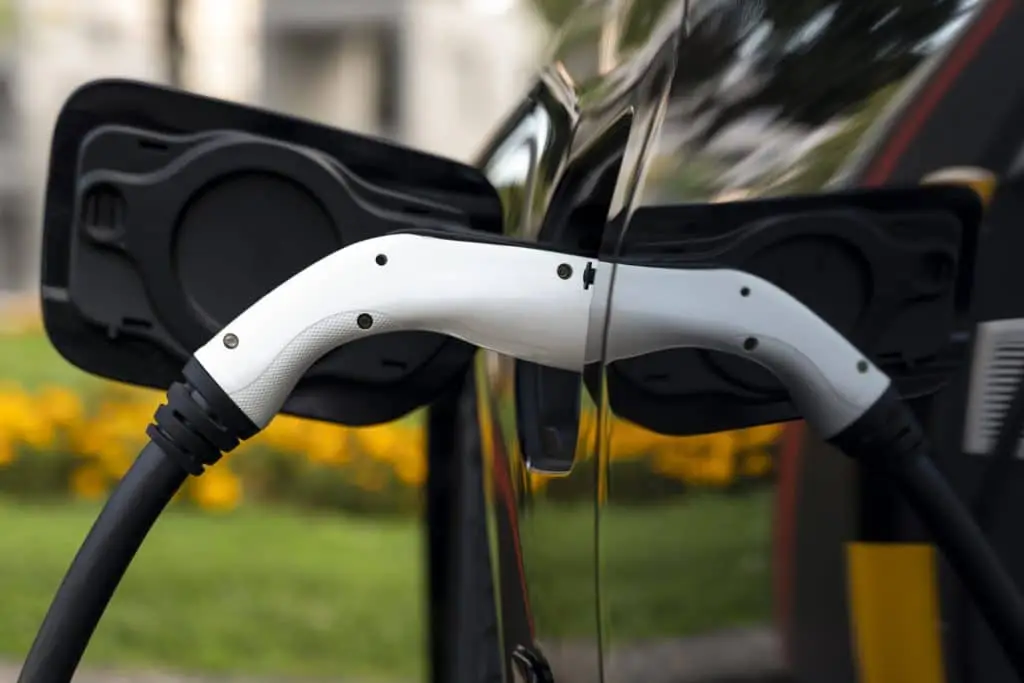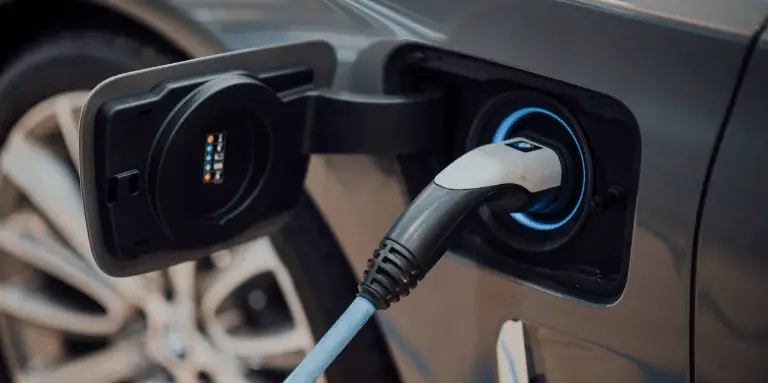Right to take for tenants in condominiums
What is the right to take and what does the law say?

The right to plug in in condominiums aims to facilitate access to electromobility by removing obstacles linked to the absence of home recharging solutions, particularly in apartment blocks.
This right allows condominium owners to install a charging station without requiring the agreement of the other co-owners, provided the work does not affect the structure of the building. Introduced by decree n°2011-873 of July 25, 2011this right was extended by decree n°2020-1720 of December 24, 2020.
Similar to the right to an antenna, the right to a plug provides a legal framework enabling all private individuals, whether owners or tenants, to install a charging infrastructure for electric vehicles or rechargeable hybrids in their condominiums.
In concrete terms, this right allows individuals to request the installation of an electric charging point in their parking space if their building does not have one. The power of the charging point must be less than or equal to 22 kW.
The lessor's obligations with regard to the right to take
If the tenant wishes to exercise his right to take, the landlord must comply with certain administrative formalities. Here's what to do:
- When the tenant notifies the landlord of his or her intention to install a charging station, the landlord must forward the request to the condominium manager within one month.
- Once the tenant has signed a contract with a charging station provider and submitted the quote to the landlord, the latter must also forward the file to the condominium manager within a maximum of 15 days.
- The owner's obligations are limited to providing all the documents required by the property manager to complete the project on time.
All other responsibilities fall to the building manager, including organizing the allocation of electricity consumption with the chosen service provider within a maximum period of two and a half months.
Can the lessor say no to the right to take?
The owner does not have the exclusive power to refuse a tenant's right to take. This decision is made by the syndicate of co-owners, representing all the co-owners, and can be contested under certain conditions:
- The syndicate, through the intermediary of the managing agent, must refer the matter to the President of the Judicial Court within 3 months of notification of the project.
- The grounds for opposition must be serious and legitimate.
Among the reasons considered to be serious and legitimate are :
- The previous presence of a charging station on the parking space in question.
- A decision already taken by the condominium to install a charging station on this parking space within a reasonable timeframe.
The right to plug: what is the procedure for installing a recharging point?
The right to plug offers all building residents, whether owners or tenants and users of an electric or rechargeable hybrid vehicle, the opportunity to request the installation of a charging station on their private parking space, whether inside or outside the building.
Here are the steps to follow to benefit from this right:
Application for installation authorization
The condominium owner or tenant sends a request to the condominium manager by registered mail with acknowledgement of receipt. This request must include the following information: the identity of the applicant and the location of his or her parking space, the technical specifications of the charging station, a description of the work required for installation, and a certificate of insurance covering the risks associated with the work and the use of the charging station.
Processing of the request by the managing agent
The syndic has three months to examine the request and present it to the general meeting of co-owners. He may also call in an expert to assist him in this task.
General Meeting decision
The general meeting of co-owners takes a decision by an absolute majority vote of the co-owners present or represented. In the event of refusal, the co-owner or lessee has the option of bringing the matter before a judge of the Tribunal de Grande Instance to assert his or her right to a taking.
Carrying out the work
Installation work is carried out by a qualified electrician, and the cost is borne by the co-owner or tenant. Financial assistance is also available to cover part of the installation costs.
Charging station commissioning
The charging station must comply with current standards, and a certificate of conformity must be issued by the electrician who carried out the work. The co-owner or tenant is responsible for upkeep and maintenance of the charging station.
Points to remember :
- The right to a plug only applies to individual charging station installations, and it is not possible to request the installation of a charging station on a parking space in the common areas.
- The property manager cannot refuse to install a charging station if the request complies with legal and regulatory provisions.
- In the event of a dispute, the judge of the Tribunal de Grande Instance is competent to settle the matter.
The rights and duties of a lessor when installing a terminal in a single-family home
Lessor not required to install charging stations in individual homes
In the case of single-family homes, French law does not oblige landlords to install charging stations for electric vehicles (EVs) or rechargeable hybrids. The right to a plug, which obliges the lessor to equip the dwelling with an electrical socket for recharging an EV, only applies to apartment buildings.
Consequence:
- The tenant of a single-family home can ask the landlord to install a charging station, but the latter is entitled to refuse.
- If the landlord accepts, the cost of the work is borne by the tenant.
- However, the tenant may be eligible for financial assistance to install a charging station.
What are the tenant's obligations?
When a tenant living in a detached house wishes to install a charging station, the law requires him to inform the owner of the property. The owner then has the option of approving or rejecting the project. Alternatively, the landlord may choose to contribute financially to the purchase and installation of the device, or even assume the entire cost, which could result in an increase in rent.
Installing a charging station in a rental property represents significant added value. It increases the property's green value, i.e. its attractiveness on the real estate market thanks to its ecological features.
Co-ownership obligations for charging stations
Pre-equipping new condominiums
As of January 1, 2021, new regulations require that all new residential buildings, for which planning permission has been submitted after this date, must include pre-equipment for the future installation of electric vehicle charging stations. This means that during construction, the necessary ducts and specific locations for these charging points must be integrated from the outset. The property developer is responsible for financing this pre-equipment.
In terms of specific requirements, every parking space in the building must be pre-equipped, with a minimum of one space per dwelling. For parking lots with more than ten spaces, 25% of these spaces must be equipped for rapid recharging. This measure aims to facilitate the future adoption of electric vehicles by guaranteeing the infrastructure required for their recharging.
Adding charging stations to the AGM agenda for older condominiums
In accordance witharticle 24-5 of law no. 65-557 of July 10, 1965, older condominiums are required to include the installation of charging stations for electric vehicles on the agenda of annual general meetings of condominium owners. This enables co-owners to discuss and decide collectively on the installation of such charging stations, in order to encourage the transition to electric mobility.
If you are concerned by this question, we recommend that you find out more from your condominium corporation or consult a professional who specializes in condominiums.
Conclusion
Droit à la prise facilitates the installation of charging points for electric vehicles in condominiums, by simplifying administrative procedures for tenants and co-owners. Landlords are required to submit requests and quotes to the property manager within a given timeframe, but cannot refuse without serious grounds. In the case of single-family homes, lessors are not obliged to install charging points, but may accept a request from the tenant, who assumes the costs.
New condominiums must be pre-equipped for charging stations, and older condominiums must discuss this installation at general meetings. These measures are designed to support the transition to more accessible and sustainable electric mobility.
If you would like to know more about the charging station tax credit at 2024please consult our article on the subject.
With Beev
Switch to
Electric car
or install your
Charging station
For individuals and businesses
































